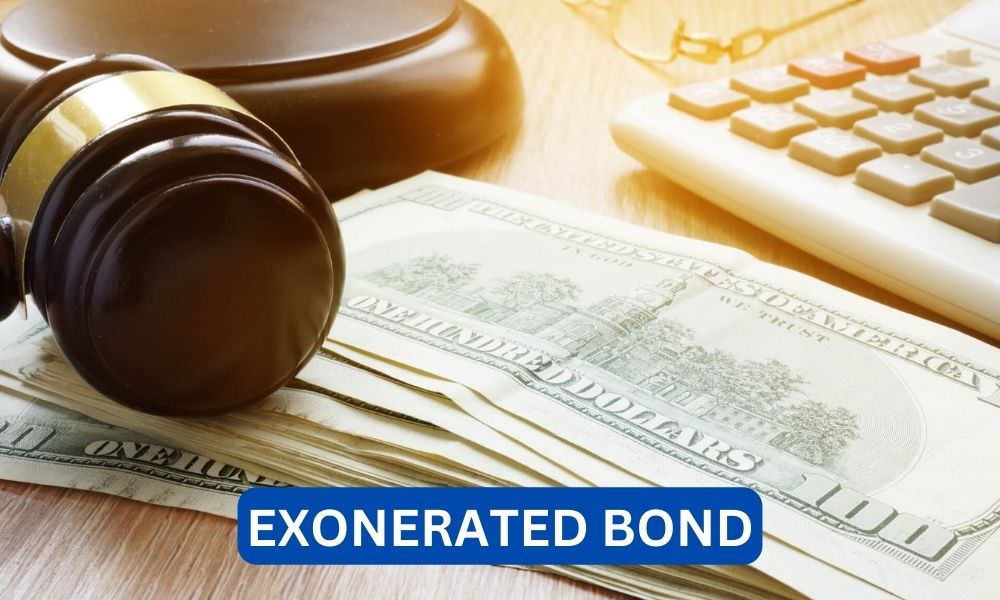When it comes to the legal system, there are numerous terms and concepts that can be confusing for the average person. One such term is “exonerated bond.” If you’ve ever found yourself wondering what exactly an exonerated bond is, you’re not alone. In this article, we will explore the meaning of exonerated bond, its significance in the legal system, and how it affects individuals involved in criminal cases.
Contents
Understanding the Basics
Before diving into the specifics of exonerated bond, it’s important to have a basic understanding of the concept of bail. Bail is a sum of money or property that is paid to the court as a guarantee that a defendant will appear for their scheduled court hearings. It serves as a way to ensure that individuals who have been accused of a crime do not flee or evade the legal process.
When a defendant is unable to afford the full amount of bail, they may seek the assistance of a bail bondsman. A bail bondsman is a person or company that provides a surety bond, also known as a bail bond, on behalf of the defendant. The bail bondsman charges a fee, typically a percentage of the total bail amount, in exchange for posting the bond.
Read:What part of the chicken has the most feathers?What is an Exonerated Bond?
An exonerated bond refers to a situation where the defendant’s bail bond is discharged or released before the conclusion of the criminal case. This typically occurs when the defendant has fulfilled their obligations and appeared for all required court hearings, resulting in the return of the bail money or collateral that was initially provided to secure their release.
There are several ways in which a bond can be exonerated:
- The defendant is acquitted or found not guilty of the charges.
- The charges against the defendant are dropped or dismissed.
- The defendant pleads guilty or is convicted, and the case is closed.
- The defendant’s case is resolved through a plea bargain.
In each of these scenarios, the court considers the defendant’s obligations fulfilled, and the bond is exonerated. It’s important to note that the exoneration of a bond does not necessarily mean that the defendant is innocent or free from legal consequences. It simply means that the bond has been discharged, and the defendant is no longer required to fulfill any further obligations related to their release.
The Significance of Exonerated Bonds
Exonerated bonds play a crucial role in the legal system for several reasons:
Read:What was the number one song on july 22 2008?1. Financial Relief for Defendants
For individuals who are unable to afford the full amount of bail, seeking the assistance of a bail bondsman can provide a way to secure their release from custody. By paying a percentage of the bail amount as a fee, defendants can avoid spending extended periods in jail while awaiting trial. The exoneration of the bond ensures that the defendant or their family will receive a refund of the bail money or collateral, providing some financial relief.
2. Incentive for Defendants to Appear in Court
The existence of a bail bond serves as an incentive for defendants to appear for their court hearings. By requiring defendants to provide collateral or pay a fee, they have a personal stake in attending their scheduled court dates. If they fail to appear, they risk forfeiting the bail money or collateral that was provided. The exoneration of the bond serves as a reward for fulfilling their obligations and appearing as required.
3. Accountability for Defendants
Exonerated bonds also hold defendants accountable for their actions. By requiring them to fulfill their obligations and appear in court, the legal system ensures that defendants are actively participating in their own defense. This accountability helps maintain the integrity of the legal process and ensures that defendants are not able to evade justice.
Read:What are some benefits of maintaining mangrove forests?Real-Life Examples
To further illustrate the concept of exonerated bonds, let’s consider a few real-life examples:
Example 1: Acquittal
John is arrested and charged with theft. His bail is set at $10,000, which he cannot afford to pay in full. John contacts a bail bondsman who agrees to post a bond on his behalf for a fee of 10% of the bail amount ($1,000). John appears for all his court hearings, and after a thorough trial, he is acquitted of the charges. The bond is exonerated, and John’s family receives a refund of the $10,000 bail money.
Example 2: Case Dismissal
Sarah is arrested and charged with drug possession. Her bail is set at $20,000, and she seeks the assistance of a bail bondsman who charges a fee of 15% ($3,000). However, before the trial begins, the prosecution decides to drop the charges due to lack of evidence. The bond is exonerated, and Sarah’s family receives a refund of the $20,000 bail money.
Example 3: Plea Bargain
Michael is arrested and charged with assault. His bail is set at $50,000, and he contacts a bail bondsman who agrees to post a bond for a fee of 8% ($4,000). During the legal proceedings, Michael decides to enter into a plea bargain and pleads guilty to a lesser charge. The case is closed, and the bond is exonerated. Michael’s family receives a refund of the $50,000 bail money.
Conclusion
Exonerated bonds are an essential aspect of the legal system, providing financial relief for defendants, incentivizing their appearance in court, and holding them accountable for their actions. Understanding the concept of exonerated bonds helps individuals navigate the complexities of the legal process and ensures that they are aware of their rights and obligations when seeking bail. Whether through acquittal, case dismissal, conviction, or plea bargain, the exoneration of a bond signifies the completion of a defendant’s obligations and the return of their bail money or collateral.









